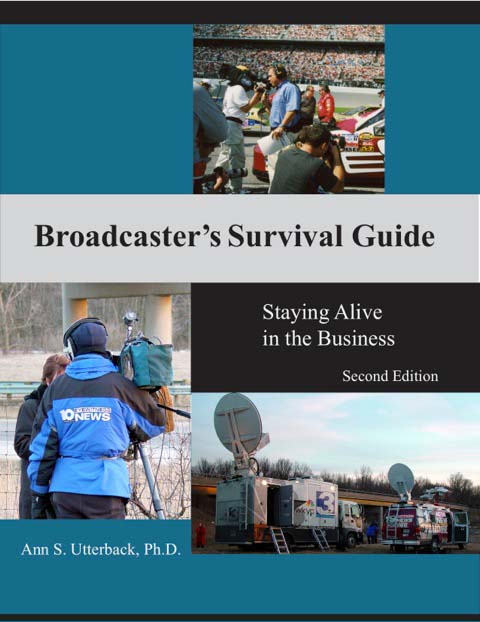|
YOUR HEALTH Sleep, Sleeeeep. Need Help? How To Get The Rest You Need To Perform Your Best April 29, 2016  By Ann Utterback By Ann UtterbackAuthor, Broadcaster's Survival Guide Skimping on sleep can be a ticket to disaster whether youíre a broadcaster or a voice over artist. A client recently reminded me how it can lead to major problems. This client, like many others Iíve coached, works a morning show, which means she must be up around 2:30 a.m. For her to be at her best, she should be asleep by 7:30 p.m. This is a hard schedule to keep, and she began cheating on it. Consequently, she hit the wall and got sick, but not before sheíd had a couple of days of less than stellar work. This is an all too familiar scenario, but itís a dangerous one. MORE THAN FUZZY STUFF New research shows that cognitive function is impaired when we donít get the recommended 7+ hours of sleep, and itís more than just having fuzzy thinking. There is evidence that lack of sleep over many years can lead to memory loss and possibly irreversible brain damage (Dr. Murali Doraiswamy, AARP Medical Advisory Board). How could lack of sleep have this catastrophic effect on the brain? Itís because there are parts of the brain that work several times harder during sleep to clear toxins from the brain. Also, crucial chemicals are released during the deeper stages of sleep that help repair the body in numerous ways. DAMAGES YOUR HEALTH Preventing these processes from happening can sabotage more than just your performance. Missing those 7 hours of sleep has been linked to an increased risk for:
You may think you cope well without much sleep, but studies show that people who think this actually have reduced cognitive function and donít know it. Much like a drunk doesnít think heís impaired, lack of sleep can make you feel like youíre functioning fine. NIGHTY, NIGHT TIPS ... So getting a good nightís sleep is a must. But how do you make that happen? 1. Shut Down 1 Hour Before First, be sure you ramp down your screen time at least an hour before you plan to sleep. If you must stay on your iPad or laptop, turn down the screen brightness. And avoid texting in the hour before bedtime. Texting has been shown to decrease good sleep both because of the screen light, and because your brain is more active during texting. 2. Set Consistent Sleep Times Keep your sleep times as consistent as possible. If you have to get up early 5 days a week, try to keep your same bedtime on the weekends, even though going to bed early is a drag. 3. Exercise 30 Minutes Daily Do at least 30 minutes of aerobic exercise every day for deeper sleep. Itís been shown to improve good sleep by 65%. 4. Lower The Lighting Lower the lighting in that last hour youíre awake. This signals the brain itís time for sleep, and it makes the body secrete melatonin, which is a natural sleep hormone. 5. No Drinking! No Food Binge, Either Avoid alcohol, caffeine, and large meals at night. Any of these will disrupt sleep. Follow these tips, and you should reap the benefits of good sleep! --------------------------------------------  ABOUT ANN ABOUT ANNAnn
S. Utterback, Ph.D., is a voice specialist with more than 40 years
experience and has helped hundreds of people make the most of their
voices, working with broadcasters, voice over artists and podcasters
around the world. An author of eight books and over 50 articles on
voice, her Broadcaster's Survival Guide
e-book offers more tips on dealing with holiday stress, plus advice on
how to improve your voice over performance by making simple lifestyle
changes.
Web: http://OnlineVoiceCoaching.comClick for: Broadcaster's Survival Guide |
As of the NEW website launch, 03/22/2012


.png)







One gadget I swear by (and sometimes at!) is an alarm clock that gradually fades up a lamp so you emerge from your REMS rather than have them crashed by a terrible noise.
I just read in New Scientist that our bodies contain not one, but hundreds of little clocks. They can get thrown out of sync - in particular by irregular mealtimes.
Hard life, ain't it?